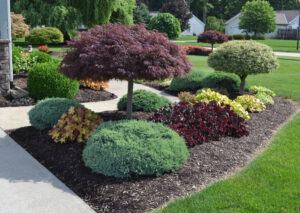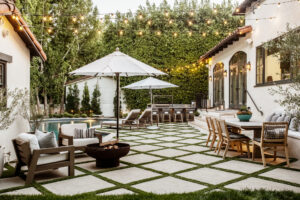Landscape Edging Ideas
When it comes to enhancing the beauty and functionality of your outdoor space, landscape edging plays a crucial role. Not only does it provide a clean and polished look to your garden, but it also helps to define different areas, prevent soil erosion, and keep your plants and mulch in place. Whether you prefer a traditional or modern aesthetic, there are numerous landscape edging ideas that can elevate your garden’s overall appeal. In this article, we will explore some creative and practical options to inspire your next landscaping project.
1. Brick Edging
Brick edging offers a timeless and elegant look to any garden. The classic red bricks can be laid in a straight or curved pattern to create a neat border around your flower beds or pathways. The durability of bricks ensures long-lasting functionality, while their natural color complements the surrounding greenery. For a more decorative touch, consider using different colored bricks or creating intricate patterns with interlocking bricks.
2. Stone Edging
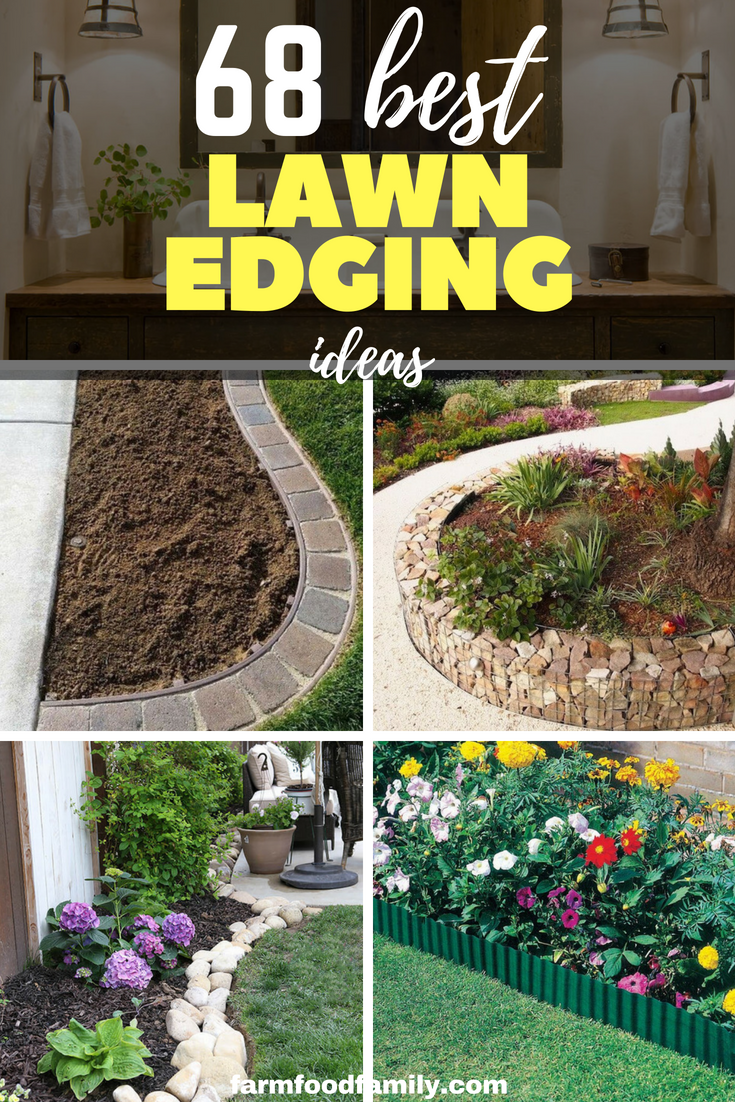
For a rustic and natural appearance, stone edging is an excellent choice. Whether you opt for large boulders, irregular stones, or neatly cut slabs, they can effortlessly add charm and character to your landscape. Stone edging works well with various garden styles, from cottage gardens to Japanese-inspired designs. Additionally, the irregular shapes and sizes of stones allow for creative arrangements that can create a unique focal point in your outdoor space.
3. Metal Edging
If you prefer a sleek and modern look, metal edging is a perfect option. It adds a contemporary touch to your garden and can be used to create clean lines and sharp angles. Metal edging is available in various materials such as aluminum, steel, or corten steel. Its durability and resistance to weather make it a popular choice among homeowners. Metal edging can be easily installed and provides a clean separation between different areas of your garden.
4. Wood Edging
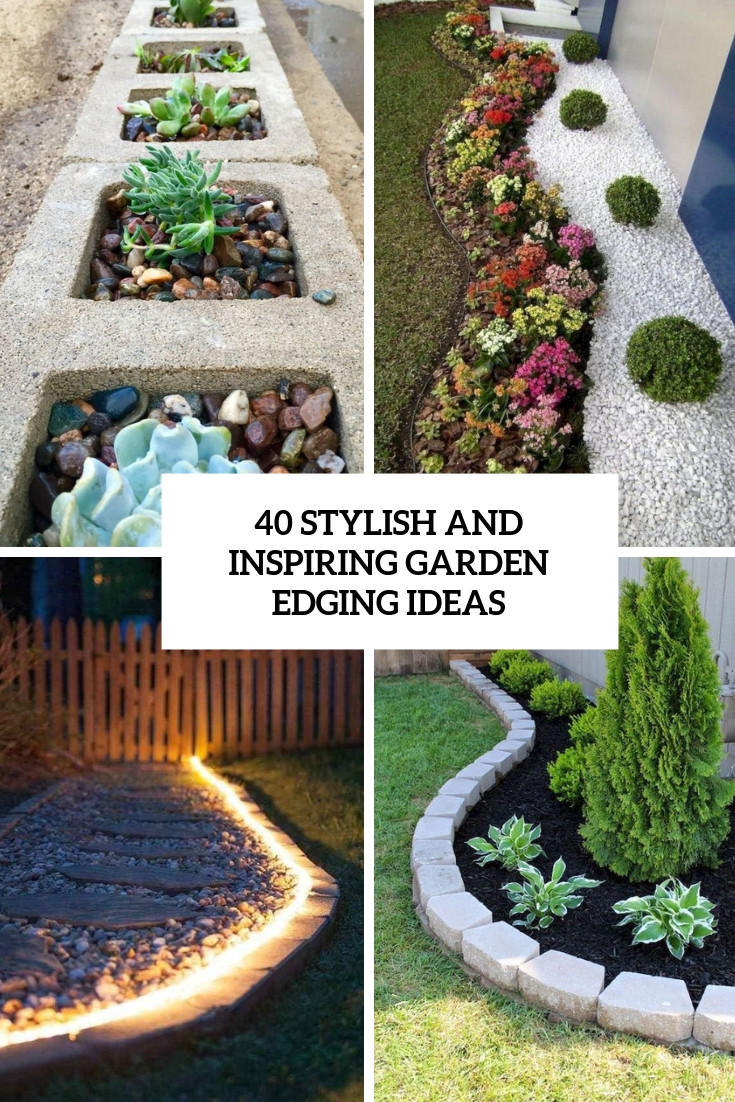
Add warmth and natural appeal to your garden with wood edging. Wooden planks or logs can be utilized to create a border for your flower beds or define pathways. Wood edging is versatile and can be easily customized to fit any garden style. It complements both traditional and contemporary designs, and the choice of wood species can further enhance the aesthetics. However, it’s important to use treated or naturally rot-resistant wood to ensure its longevity.
5. Concrete Edging
Concrete edging offers a clean and minimalist look to your garden. It can be poured in any shape or size, allowing you to create custom borders that suit your specific needs. Concrete edging is durable, low-maintenance, and long-lasting. It can be left as it is or stained in a variety of colors to match your garden’s theme. Consider combining concrete with other materials like pebbles or glass to add a decorative touch.
6. Plastic Edging
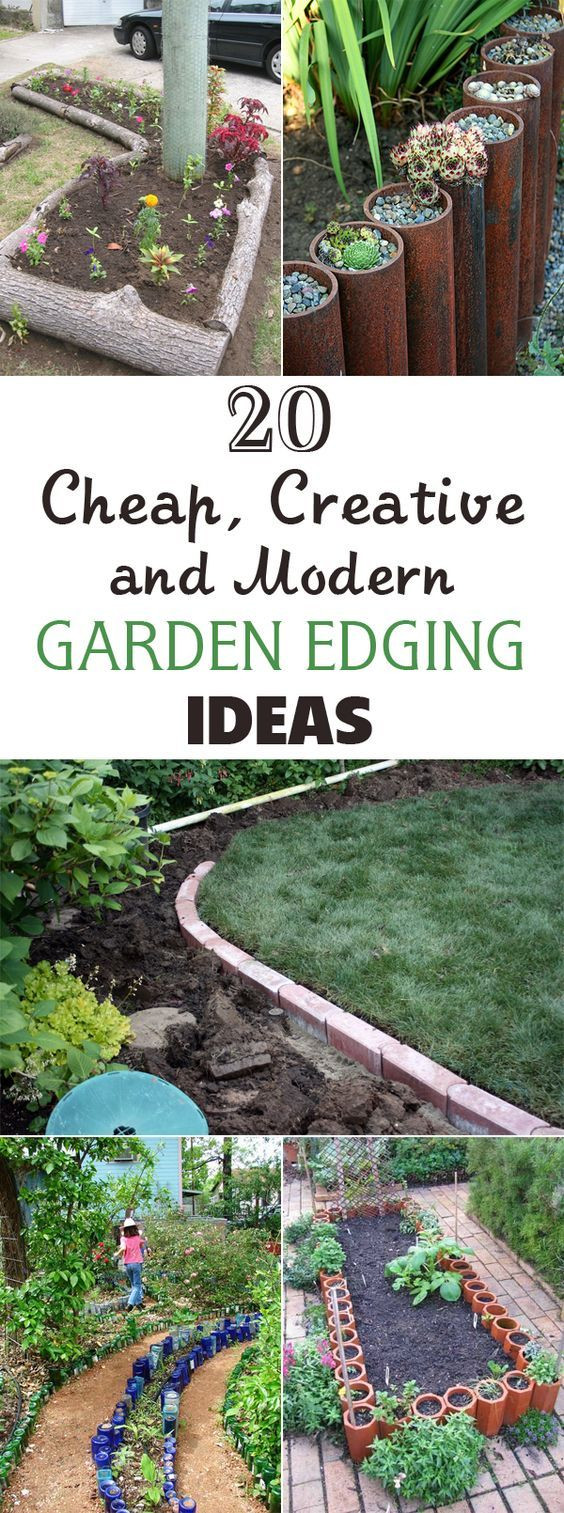
If you’re looking for an affordable and easy-to-install option, plastic edging might be the right choice for you. It is lightweight, flexible, and comes in a variety of colors and styles. Plastic edging can be easily bent to create curves or straight lines, making it ideal for irregular-shaped gardens. Although it may not offer the same durability as other materials, plastic edging is a practical solution for those on a budget or looking for a temporary edging solution.
7. Paver Edging
Utilize leftover pavers or create a cohesive look by using matching pavers as edging. Paver edging can be installed in a variety of patterns, such as a herringbone or basket weave, to add visual interest to your garden. It can be used to define borders, create raised flower beds, or construct retaining walls. The versatility and durability of paver edging make it a popular choice among DIY enthusiasts.
8. Gabion Edging

For a contemporary and industrial look, consider using gabion edging. Gabions are wire cages filled with rocks, creating a unique and eye-catching border. They can be stacked to various heights and shapes, allowing you to customize the edging according to your preferences. Gabion edging works well in modern gardens or in areas where you want to add a touch of visual interest.
9. Recycled Materials Edging
Embrace sustainability by using recycled materials as edging in your garden. Old wine bottles, reclaimed tires, or discarded metal can be repurposed to create a quirky and eco-friendly border. Not only does this option add a unique charm to your outdoor space, but it also reduces waste and showcases your commitment to the environment.
10. Living Edging

Introduce a touch of greenery to your garden by using plants as edging. Low-growing plants like dwarf mondo grass, creeping thyme, or sedum can create a natural and soft border. Living edging adds a seamless transition between different areas of your garden and provides a habitat for beneficial insects. However, it requires regular maintenance and pruning to keep the plants in shape.
11. Gravel Edging
Add texture and visual appeal to your garden with gravel edging. It can be used to define flower beds, pathways, or create a contemporary dry riverbed look. Gravel comes in various sizes and colors, allowing you to choose the one that complements your garden’s overall design. Use edging materials, such as plastic or metal, to keep the gravel in place and prevent it from spreading into other areas.
12. Bamboo Edging

For an exotic and tropical feel, bamboo edging is an excellent choice. It adds a touch of Zen to your garden and complements Asian-inspired designs. Bamboo edging can be used to create borders or screens, providing privacy and a sense of enclosure. Ensure that you choose a sturdy bamboo variety and use a proper barrier to prevent it from spreading uncontrollably.
13. Shell Edging
If you live near the coast or want to create a beach-themed garden, shell edging can be an interesting option. Collect shells from your local beach or purchase them from a craft store. Use the shells to create a unique border that reflects your love for the ocean. Shell edging works well in coastal gardens or as a decorative touch around water features.
14. Gabion Wall Edging
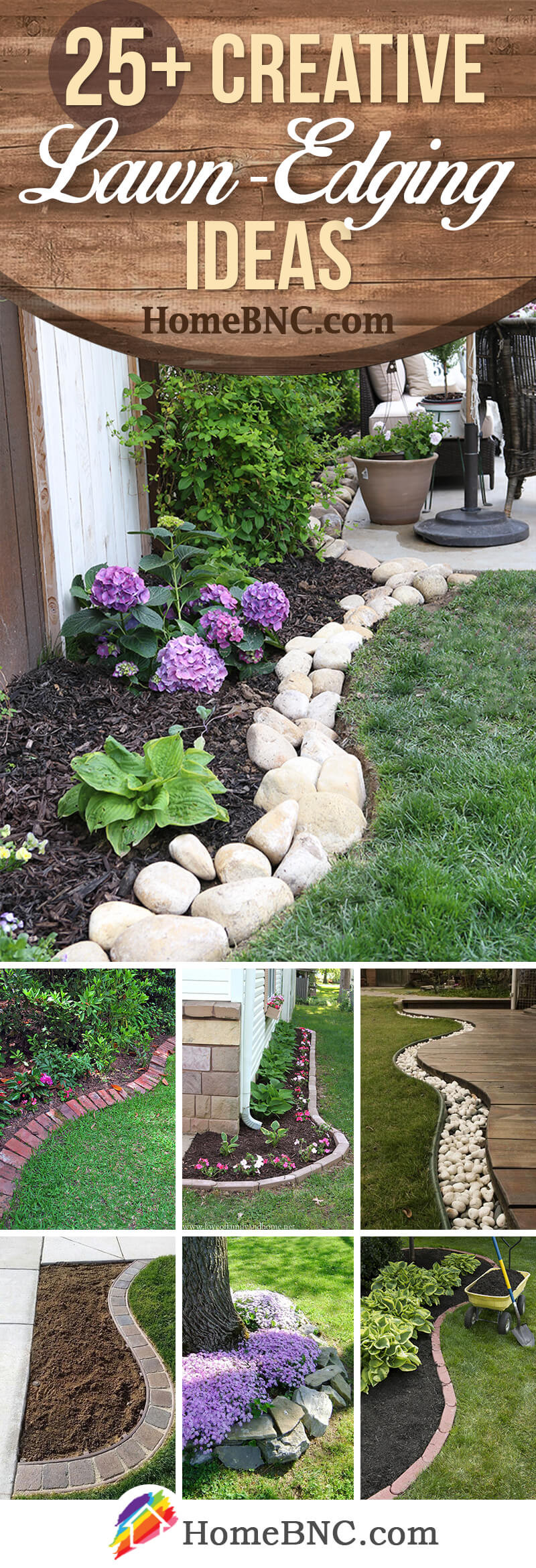
Take gabion edging to the next level by building a gabion wall. A gabion wall is a structure made of wire cages filled with rocks. It can be used as a retaining wall or to define boundaries in your garden. Gabion walls are sturdy, durable, and provide a unique industrial look to your outdoor space.
15. Herb Edging
Create a functional and aromatic border by using herbs as edging. Herbs like lavender, rosemary, or thyme not only add a lovely fragrance to your garden but also offer various culinary and medicinal benefits. Herb edging works well in kitchen gardens or as a border around patio areas.
16. Railroad Tie Edging
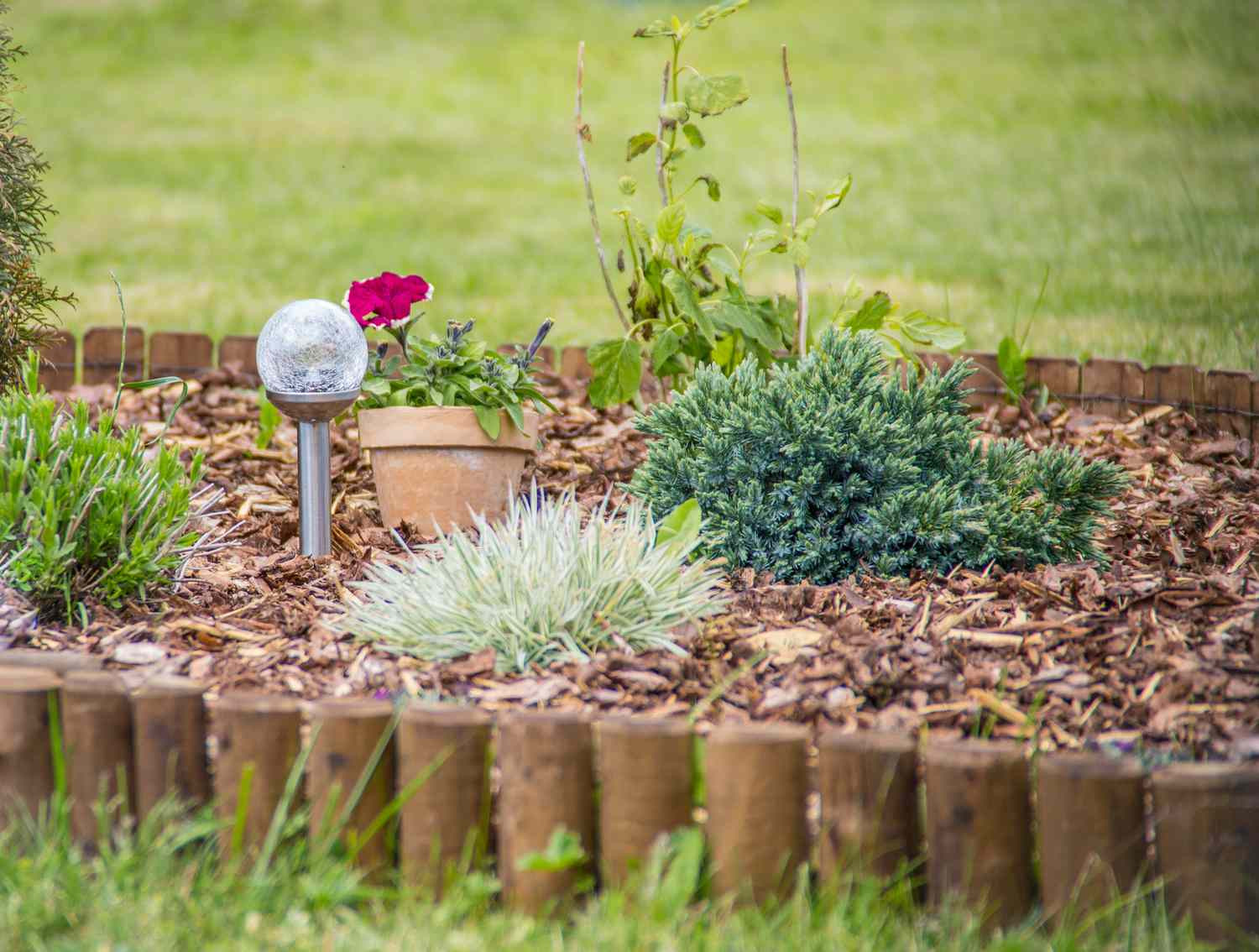
Railroad ties, also known as sleepers, can be repurposed as edging materials. These large and heavy wooden beams provide a sturdy and durable border that can withstand different weather conditions. Railroad tie edging adds a rustic and industrial look to your garden, perfect for creating contrast against lush greenery.
17. Gabion Bench Edging
Combine functionality with aesthetic appeal by using gabion benches as edging. A gabion bench is a seating structure made of wire cages filled with rocks. It can be used as a stylish and unique border around your garden while providing a comfortable seating area. Gabion bench edging works well in contemporary gardens or urban outdoor spaces.
18. Glass Bottle Edging

Add a pop of color and creativity to your garden by using glass bottles as edging. Collect glass bottles of various sizes and colors, ensuring they are similar in shape. Dig a trench along the desired border and insert the bottles upside down, leaving the necks exposed. Glass bottle edging creates a whimsical and eco-friendly border that catches the sunlight and adds a playful touch to your garden.
19. Corten Steel Edging
Create a modern and industrial look with corten steel edging. Corten steel, also known as weathering steel, develops a beautiful rust-like patina over time, enhancing its aesthetic appeal. Corten steel edging can be used to create clean lines and sharp angles, adding a contemporary touch to your garden.
20. Sculptural Edging
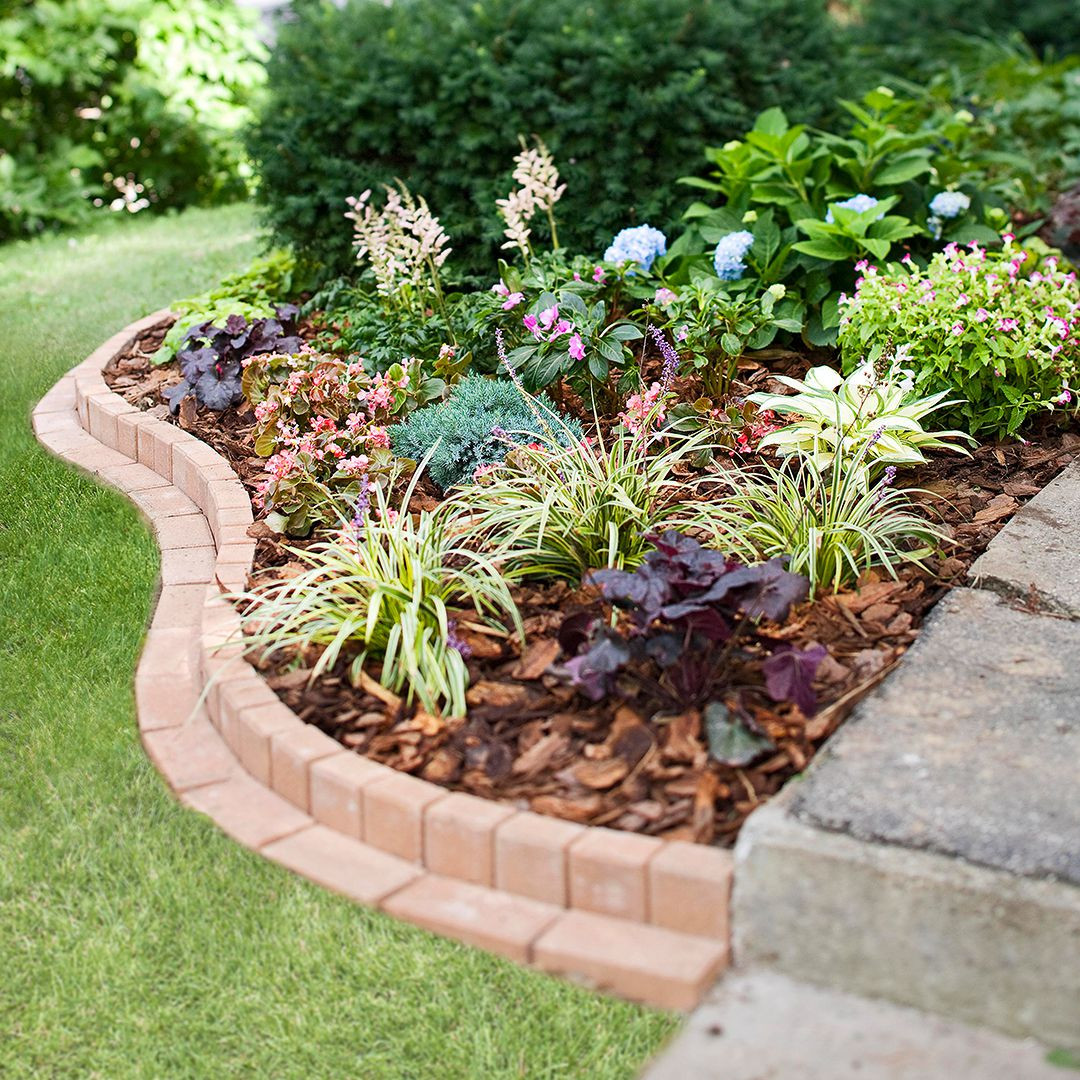
Transform your garden border into a work of art by using sculptural elements as edging. Sculptural edging can be made of various materials, such as metal, stone, or wood, and comes in a range of shapes and sizes. Incorporate sculptures or artistic installations that align with your garden’s theme and create a focal point that sparks conversation.
21. Moss Edging
Add a touch of enchantment to your garden with moss edging. Moss can be encouraged to grow along the border by ensuring a moist and shaded environment. Moss edging creates a soft and natural border that blends seamlessly with the surrounding foliage, giving your garden a whimsical and magical feel.

